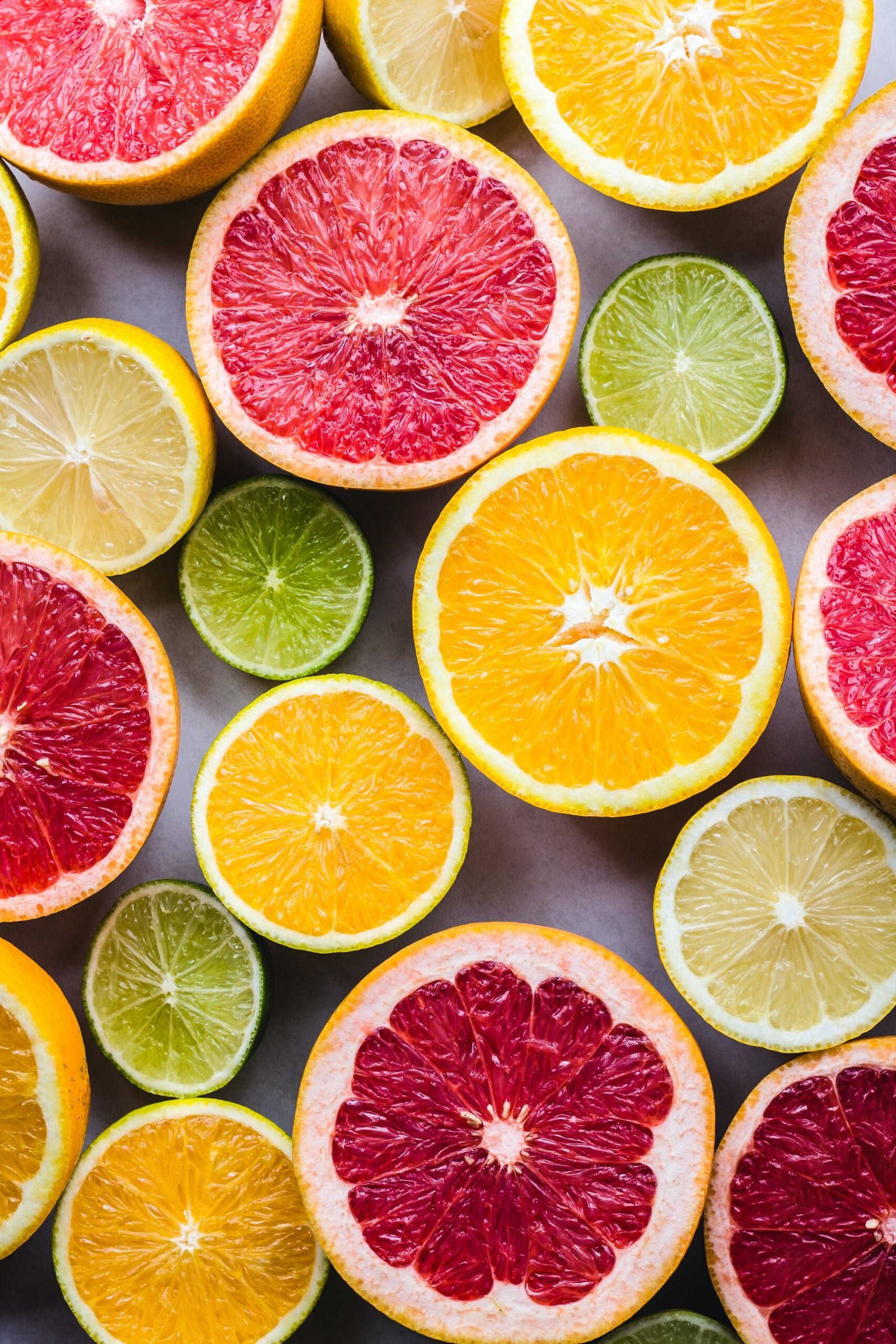Have you ever wondered if the food you eat could be the cause of your gout? In this article, we will explore the connection between gout and poor diet. Often characterized by sudden and severe joint pain, gout is a form of arthritis that affects millions of people worldwide. While it is widely known that certain dietary choices can trigger gout attacks, the question remains: is gout really a result of poor diet? Let's dig deeper and uncover the truth behind this common misconception.
Understanding Gout
Definition of Gout
Gout is a type of arthritis characterized by sudden and severe attacks of pain, redness, and swelling in the joints, most commonly affecting the big toe. It occurs when there is a buildup of uric acid in the blood, leading to the formation of urate crystals in the joints. These crystals cause inflammation, resulting in the symptoms associated with gout.
Causes of Gout
While it is true that gout is strongly associated with excessive purine consumption, it is not solely caused by a poor diet. Other factors that contribute to the development of gout include genetics, age, gender, obesity, certain medical conditions such as hypertension and diabetes, and the use of certain medications. However, diet does play a significant role in the management of gout and can contribute to the frequency and severity of gout flares.
Symptoms associated with Gout
The most common symptom of gout is the sudden onset of intense pain, often described as a throbbing or crushing sensation, in the affected joint. The joint becomes swollen, red, and tender to the touch. Gout attacks typically occur at night and can last for a few days to several weeks. If left untreated, gout can lead to the development of chronic gouty arthritis, which is characterized by persistent joint damage and deformity.
Role of Diet in Gout
How diet can contribute to Gout
Diet plays a significant role in gout management because it directly affects the level of uric acid in the blood. Certain foods contain high levels of purines, which are broken down into uric acid during digestion. Excessive consumption of these purine-rich foods can lead to an accumulation of uric acid in the blood, increasing the risk of gout flares. Additionally, a diet high in refined sugars and alcohol can also contribute to the development of gout.
Connection between diet and Gout flares
There is a strong correlation between diet and gout flares. Consuming foods high in purines can trigger a gout attack, especially if there is already an elevated level of uric acid in the blood. Alcohol, particularly beer, is known to increase the risk of gout flares due to its high purine content and its ability to impair the excretion of uric acid. Moreover, sugary beverages, such as soda and fruit juices, have been shown to increase the risk of gout as they can lead to weight gain and insulin resistance.
Overview of purines in food
Purines are natural compounds found in varying amounts in many foods, both plant-based and animal-based. While it is important for gout sufferers to limit their intake of purine-rich foods, it is not necessary to completely eliminate them from the diet. Examples of foods high in purines include organ meats (liver, kidneys), seafood (sardines, anchovies), red meat, and certain vegetables (asparagus, mushrooms). On the other hand, foods low in purines include dairy products, eggs, fruits, vegetables (except for high-purine ones), and grains.

Problematic Foods for Gout
Foods with high purine content
Foods with high purine content should be consumed in moderation or avoided altogether by individuals with gout. These include organ meats like liver and kidneys, which are particularly high in purines. Seafood such as sardines, anchovies, mussels, and scallops are also rich in purines. Additionally, red meat and game meats, such as beef, lamb, and venison, can contribute to the elevation of uric acid levels in the blood.
Alcohol and Gout
Alcohol consumption, especially beer, can significantly increase the risk of gout flares. Beer contains high levels of purines, which are responsible for raising uric acid levels in the blood. Moreover, alcohol inhibits the excretion of uric acid from the kidneys, leading to its buildup in the body. Wine and spirits have also been associated with an increased risk of gout, albeit to a lesser extent than beer. Therefore, it is advisable for individuals with gout to limit or avoid alcohol consumption.
Sugary beverages and Gout
Sugary beverages, such as soda and fruit juices, are not only high in calories but also have been linked to an increased risk of gout. These sugary drinks can lead to weight gain and obesity, both of which are associated with a higher likelihood of developing gout. Furthermore, the consumption of fructose, a type of sugar found in many sweetened beverages, has been shown to increase uric acid levels in the blood. Therefore, it is important for gout sufferers to limit their intake of sugary drinks and opt for water or unsweetened beverages instead.
Foods that May Reduce Gout Risk
Dairy products and Gout
Contrary to popular belief, dairy products have been found to have a protective effect against gout. Research suggests that consuming low-fat dairy products, such as milk, yogurt, and cheese, can help reduce the risk of developing gout or experiencing gout flares. The exact mechanism behind this is not fully understood, but it is thought that the high calcium content in dairy products may enhance the excretion of uric acid and decrease its production. However, individual tolerance to dairy products may vary, and it is important to choose low-fat options to avoid excessive fat intake.
Foods with low purine content
While gout sufferers should limit their intake of high-purine foods, it is equally important to include foods low in purines in their diet. These foods can provide essential nutrients without significantly raising uric acid levels. Examples of low-purine foods include low-fat dairy products, eggs, fruits, vegetables (except for high-purine ones), and whole grains. Incorporating a variety of these low-purine foods into meals can help maintain a balanced diet while reducing the risk of gout flares.
Influence of vitamin C on Gout risk
There is some evidence to suggest that vitamin C may help reduce the risk of gout or alleviate its symptoms. Vitamin C, found in citrus fruits, strawberries, bell peppers, and other fruits and vegetables, can increase the excretion of uric acid by the kidneys, thereby lowering its levels in the blood. However, it is important to note that vitamin C alone is not a substitute for a healthy diet and lifestyle. It should be obtained through a well-rounded diet rather than relying solely on supplements.

Understanding the Correlation between Obesity and Gout
Impact of overweight and obesity on Gout risk
Obesity is strongly associated with an increased risk of gout. Excess weight can lead to elevated uric acid levels in the blood, as obesity is often accompanied by insulin resistance and poor kidney function, both of which can impair uric acid excretion. Additionally, obese individuals tend to have higher levels of inflammation, which can further contribute to gout flares. Losing weight and maintaining a healthy body weight is an important step in managing and preventing gout.
How weight loss can influence Gout
Weight loss can have a positive impact on gout management. Shedding excess pounds can help reduce uric acid levels in the blood, decreasing the risk of gout flares. Losing weight also improves insulin sensitivity and kidney function, both of which play a role in uric acid regulation. However, it is important to lose weight gradually and in a healthy manner to avoid rapid changes in uric acid levels, which can trigger gout attacks. A combination of a balanced diet and regular physical activity is key to successful weight loss and gout management.
Dietary Patterns and Gout
Mediterranean diet and Gout
The Mediterranean diet, which emphasizes fruits, vegetables, whole grains, lean proteins, and healthy fats, has been associated with a lower risk of gout. This dietary pattern is rich in anti-inflammatory foods, such as fatty fish, olive oil, nuts, and berries, which can help reduce inflammation associated with gout flares. Additionally, the Mediterranean diet encourages moderate alcohol consumption, predominantly in the form of red wine, which has been shown to have potential benefits for gout sufferers. Adopting a Mediterranean-style eating pattern can be beneficial for managing gout and promoting overall health.
Western diet and Gout
In contrast, the Western diet, characterized by a high intake of red meat, processed foods, sugary drinks, and refined grains, has been associated with an increased risk of gout. This dietary pattern promotes inflammation and weight gain, both of which contribute to the development and worsening of gout symptoms. The Western diet also tends to be low in fruits, vegetables, and whole grains, which are important for gout management. Avoiding or limiting the consumption of Western-style foods can help reduce the risk of gout and improve overall health.
Vegetarian diet and Gout
A vegetarian diet, when properly planned, can be a suitable option for individuals with gout. Plant-based diets are naturally low in purines and can provide a wide array of nutrients that support the management of gout. By focusing on fruits, vegetables, legumes, whole grains, nuts, and seeds, vegetarians can reduce their intake of high-purine foods and increase their consumption of foods that may help alleviate gout symptoms. However, it is important for vegetarians to ensure they are getting adequate nutrients, such as protein and vitamin B12, through plant-based sources or supplements.

Misconceptions about Gout and Diet
Common myths about Gout
There are several common misconceptions about gout and diet that need to be clarified. One myth is that all high-protein foods should be avoided, as protein is often associated with purines. However, not all high-protein foods are high in purines, and it is important to consider the complete nutritional profile of a food when making dietary choices. Another myth is that all fruits are bad for gout, but in reality, most fruits are low in purines and can be incorporated into a gout-friendly diet. Lastly, some mistakenly believe that cutting out certain foods completely is the best approach, but moderation and balance are key to gout management.
Clarifying misunderstood dietary rules for Gout
To clarify some dietary rules for gout, it is important to understand that moderation is key. While it is advisable to limit the intake of high-purine foods, it is not necessary to completely eliminate them from the diet. Portion control and moderation can allow for occasional consumption of high-purine foods without triggering gout flares. Additionally, it is important to focus on overall dietary patterns rather than fixating on single foods or nutrients. A well-rounded diet that includes a variety of nutrient-dense foods is essential for managing gout and promoting overall health.
The impact of dehydration on Gout
Dehydration can have a negative impact on gout management. When the body is dehydrated, uric acid becomes more concentrated in the blood, increasing the risk of gout flares. Staying hydrated is essential for maintaining optimal kidney function, which is crucial for the excretion of uric acid. Drinking an adequate amount of water throughout the day helps prevent dehydration and supports the overall management of gout. It is recommended to drink at least 8 cups (64 ounces) of water daily, or more if engaging in physical activity or during hot weather.
Medical Therapies for Gout
Medications used in Gout treatment
Medical therapies play a vital role in managing gout and preventing recurrent flares. The most commonly prescribed medications for gout include nonsteroidal anti-inflammatory drugs (NSAIDs) to relieve pain and reduce inflammation during acute attacks. Colchicine, a medication that reduces inflammation and prevents further gout attacks, may also be prescribed. In some cases, corticosteroids may be prescribed to manage severe gout attacks. Additionally, urate-lowering therapy, such as allopurinol or febuxostat, may be prescribed to lower uric acid levels in the blood and prevent future gout flares.
Role of diet in complementing medical therapies
While medications are essential in the treatment of gout, dietary modifications can complement these medical therapies and enhance their effectiveness. Adopting a gout-friendly diet helps reduce the intake of purine-rich foods and contributes to overall uric acid control. By working in tandem with medical therapies, an appropriate diet can help decrease the frequency and severity of gout flares, leading to better management of the condition and improved quality of life.
Emerging therapies for Gout
Research is ongoing to develop new therapies for gout, aiming to provide more targeted treatment options and improved outcomes for individuals with gout. One emerging therapy is the use of selective urate transporters to enhance the excretion of uric acid from the body, thus lowering its levels in the blood. Another area of research focuses on developing medications that inhibit the production of uric acid within the body. These emerging therapies show promise in providing additional treatment options for gout and may further improve the management of this condition in the future.
Lifestyle Modifications for Managing Gout
Effect of exercise on Gout
Regular exercise is an important lifestyle modification for managing gout. Physical activity helps maintain a healthy weight, reduces inflammation, and improves overall joint health. Engaging in aerobic exercises, such as walking, swimming, or cycling, can enhance cardiovascular health and aid in weight loss. Additionally, strength training exercises help build muscle and support joint stability. However, it is important to avoid high-impact activities or overexertion during gout flares to prevent aggravation of symptoms. Consulting with a healthcare professional before starting an exercise routine is recommended.
Importance of hydration
Hydration plays a crucial role in gout management. Drinking an adequate amount of water helps prevent uric acid buildup in the blood and supports the excretion of uric acid by the kidneys. It is important to stay hydrated throughout the day, particularly during gout flares or in hot weather. Replacing sugary beverages with water or unsweetened drinks is beneficial for overall health and gout management. Additionally, consuming foods with high water content, such as fruits and vegetables, can contribute to hydration and provide valuable nutrients.
The need for regular check-ups
Regular check-ups with healthcare professionals are important for individuals with gout to monitor their condition and adjust treatment plans as necessary. Routine visits allow for the assessment of uric acid levels, evaluation of kidney function, and monitoring of overall health status. Healthcare professionals can provide guidance on medication management, lifestyle modifications, and dietary adjustments based on individual needs. Establishing a rapport with a healthcare team familiar with gout management ensures comprehensive care and effective disease management.
Long-term Impact of Diet on Gout
Potential life expectancy effects due to Gout
Gout, if left unmanaged, can have long-term effects on health and potentially reduce life expectancy. Chronic gouty arthritis, characterized by persistent joint damage and deformity, can significantly impact mobility and quality of life. The repeated inflammation and damage to affected joints can lead to disability and increased mortality. Additionally, there is an increased risk of developing other comorbidities such as hypertension, cardiovascular disease, and kidney disease in individuals with gout. However, with proper management and adherence to a gout-friendly diet, these risks can be mitigated, and long-term health outcomes can be improved.
The role of a balanced diet in Gout prevention
A balanced diet plays a critical role in the prevention of gout. By avoiding or limiting high-purine foods, reducing sugar and alcohol intake, and adopting a diet rich in fruits, vegetables, whole grains, and low-fat dairy products, individuals can reduce their risk of developing gout. A balanced diet that promotes a healthy body weight and supports optimal kidney function helps regulate uric acid levels and prevents the formation of urate crystals. It is important to maintain a long-term commitment to a healthy diet to prevent gout and its associated complications.
Continuous dietary management for Gout patients
Dietary management is an ongoing process for individuals with gout. It is crucial to maintain a gout-friendly diet consistently to reduce the risk of gout flares and manage the condition effectively. Regular monitoring of purine intake, portion control, and moderation in eating habits are key components of dietary management. Keeping abreast of new research and recommendations can also aid in refining dietary choices. By prioritizing a healthy and balanced diet, individuals with gout can maintain optimal uric acid levels and improve their overall health and well-being.
